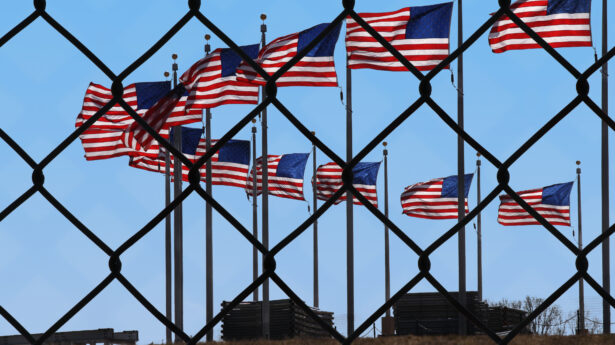The Unitarian Universalist Service Committee advances human rights through grassroots collaborations.
U.S. Must Improve Central American Minors Program

By UUSC Staff on October 17, 2022
Just over a year ago, the Biden administration announced the expansion of the Central American Minors (CAM) Refugee and Parole program—an initiative to enable some at-risk children from Central America to apply for refugee or parole status in the United States.
As a pathway to safety and family reunification, the CAM program has enormous positive potential; however, a new report from the International Refugee Assistance Project (IRAP) shows that its implementation over the past year has fallen woefully short of expectations. These findings bear out the warnings of earlier UUSC research and confirm the need for the U.S. government to take urgent steps to improve and expand access to the program.
The CAM program launched toward the end of the Obama administration as a pathway for some Central American children facing persecution to apply for refugee status from inside their home countries—that is, without having to make the dangerous journey to the U.S. border. In order to qualify, however, these children needed a parent or legal guardian already living in the United States with legal status who could initiate an application. Moreover, the application process was often lengthy and required them to travel long distances.
From the beginning, therefore, the program had a dual aspect. On the one hand, it provided and continues to provide a necessary and life-saving pathway for qualifying children to reunite in safety with their parents and guardians. On the other, it excludes many children with equally grave protection needs, either because they do not have qualifying relatives, or because the nature of the threats against them precludes them from traveling to big cities or waiting long periods in their home countries for their case to be decided.
Due to these human rights concerns, UUSC set out to investigate the program during its first two years of operation. To do so, we partnered with grassroots researchers and legal service providers in Central America and the United States—specifically, the Independent Monitoring Group of El Salvador (GMIES), the Center for the Investigation and Promotion of Human Rights (CIPRODEH), and the Refugee and Immigrant Center for Education and Legal Services (RAICES)—who interviewed children applying for the program, as well as those arriving at the border as asylum-seekers.
What we found from doing so bore out our initial concerns about the program, while also highlighting its essential role as a life-saving pathway for those who manage to qualify. Our report urged the administration to strengthen and expand the program, including by increasing financial support to the refugee resettlement agencies for processing CAM applications, expediting the applications of children at heightened risk, and expanding the availability of regional interviews so as to protect children from the dangers of long-distance travel.
Shortly after our 2016 report came out, the Trump administration took office and ended the CAM program entirely, stranding thousands of children in a state of heightened vulnerability in the midst of the application process. A subsequent lawsuit on behalf of these children and their families forced the U.S. government to restore limited processing for those already in the application pipeline; and in March 2021, the Biden administration made the admirable decision to try to restore the program to its original promise.
In September 2021, the Biden administration announced that they were re-opening the program to new applicants, as well as those who had submitted their paperwork previously. Just as under the Obama administration, we welcomed the program on its own terms—while also warning that it must not be portrayed as a substitute for asylum or other essential pathways to humanitarian protection.
A year later, refugee advocates are in a position to assess the administration’s progress. And while the restored CAM program has once again provided a life-saving pathway for some qualifying children to reunite with their family members in the U.S., IRAP’s new report shows that the original problems with CAM have not been resolved. Among other issues, children are still facing needless delays in the length of the application process—increasing their vulnerability from the same people they are trying to escape—and the program’s requirements still put applicants at heightened risk by requiring them to travel long distances.
The report’s recommendations—included in a coalition letter that UUSC has joined as well—mirror the steps UUSC urged the Obama administration to take back in 2016: including increased resources for resettlement agencies, expedited processing for at-risk applicants, greater access to counsel, and more regional interviews to safeguard children from having to make dangerous trips to capital cities. In other words, despite having nearly six years to digest these recommendations, the U.S. government is still failing to take some common sense steps that would improve the accessibility and safety of CAM.
Each time it has been implemented, CAM has demonstrated its capacity to save lives. Yet the program could be accomplishing so much more good. As the authors of IRAP’s new report put it, CAM right now, “is a mere shadow of its true potential.” The Biden administration should finally heed the advice that IRAP, UUSC, and other refugee advocates have been urging for more than half a decade: implement these long-overdue reforms to CAM and enable many more children to reunite with their loved ones in safety.
Image Credit: UUSC

